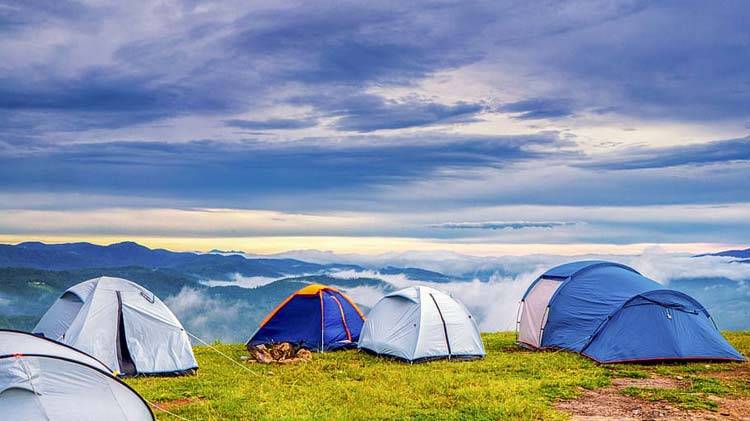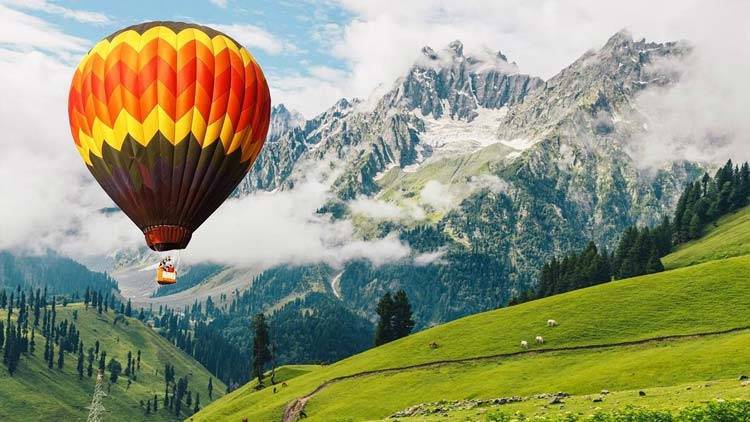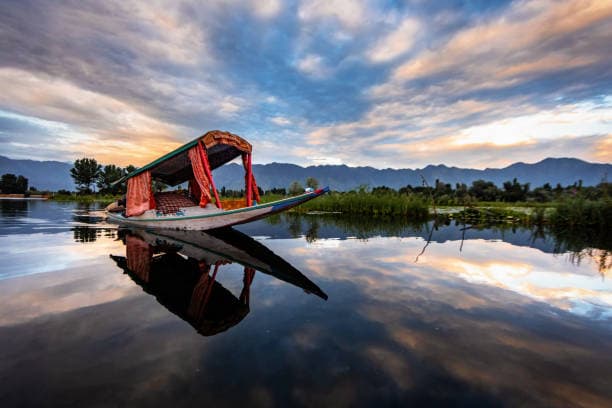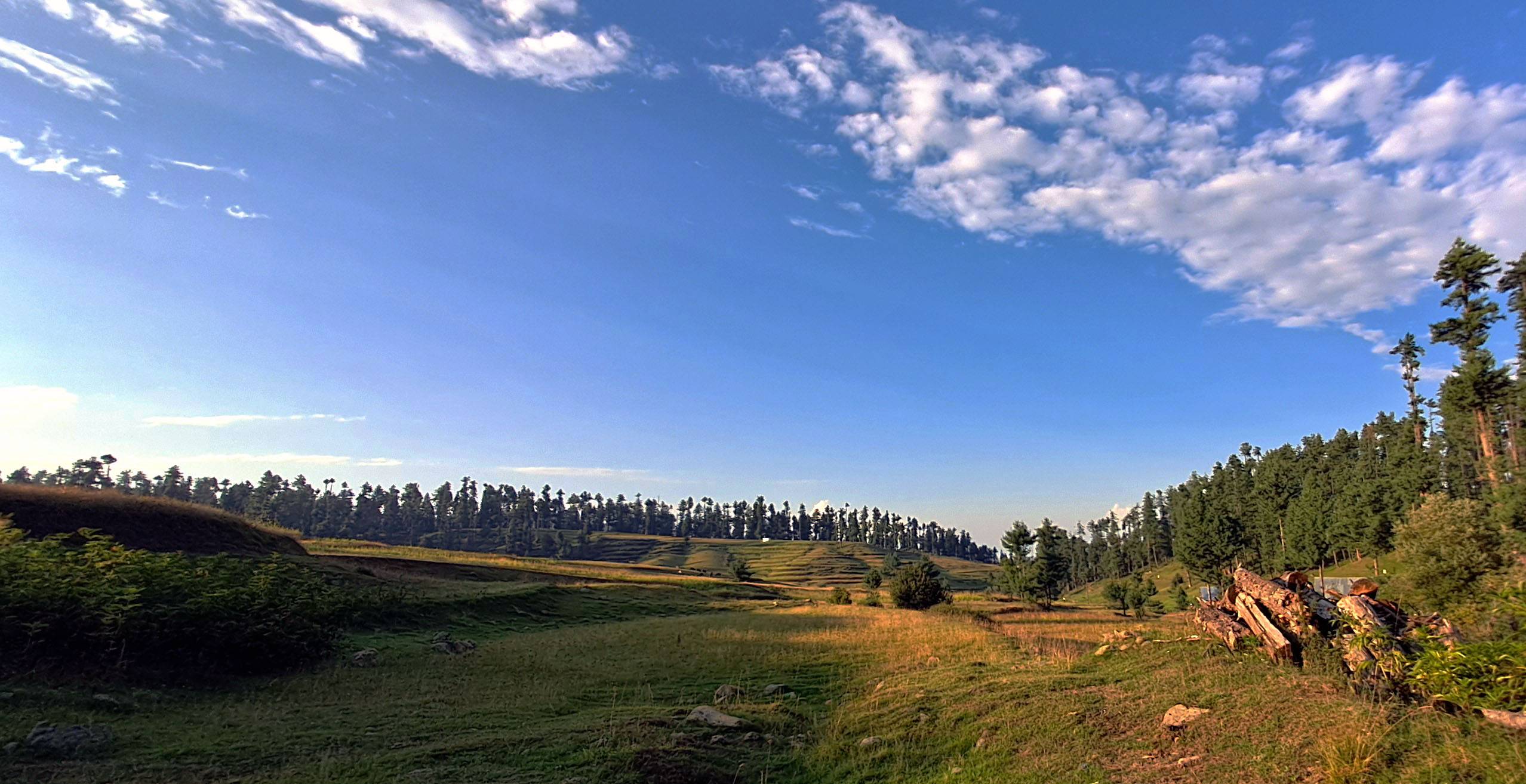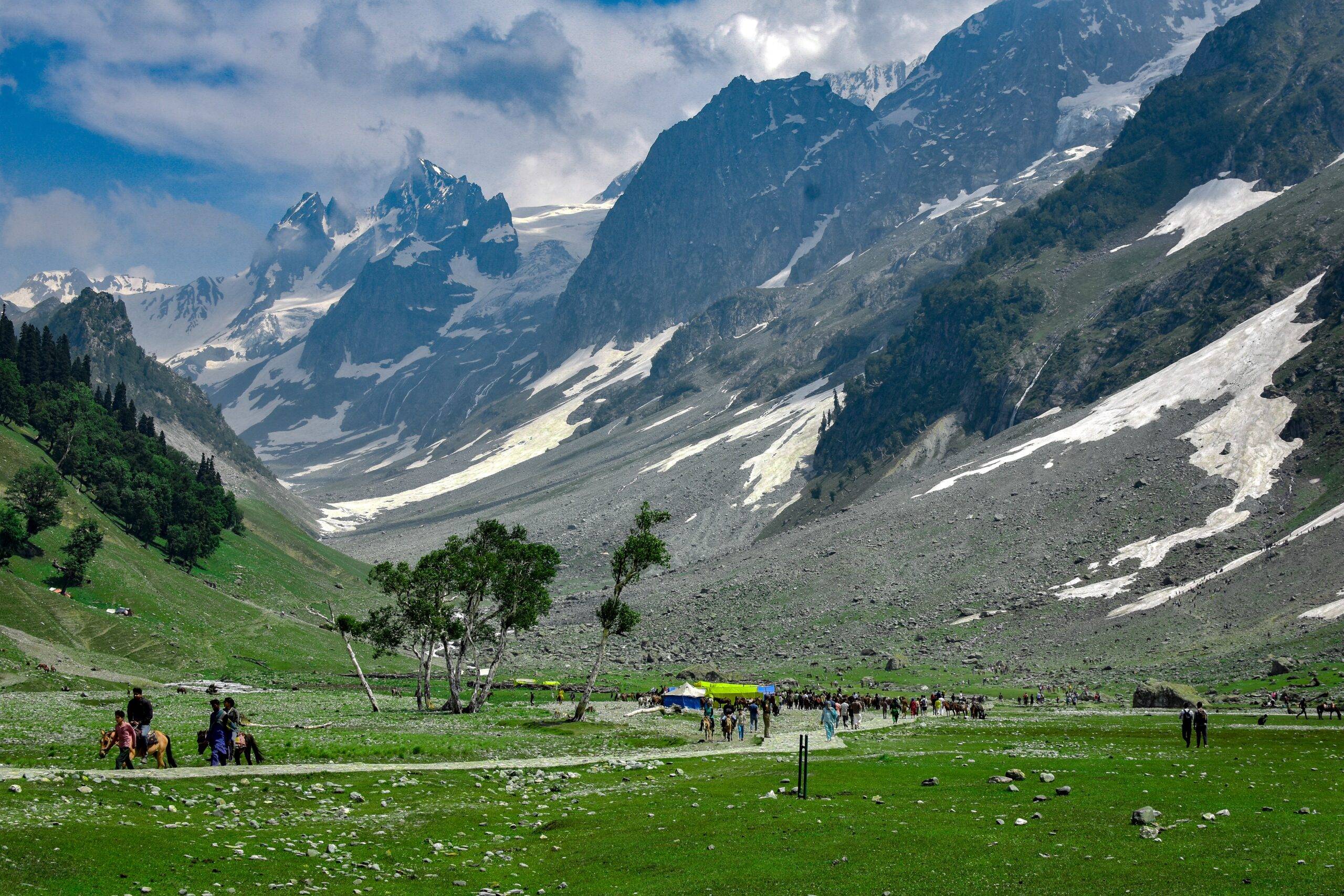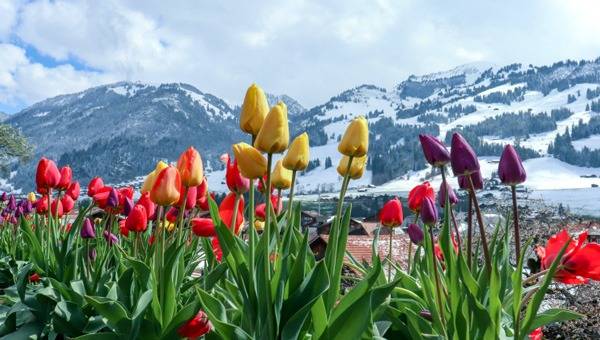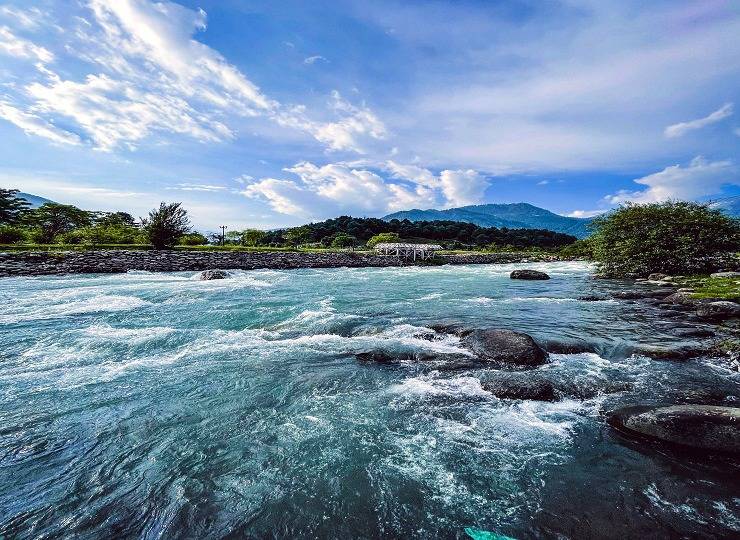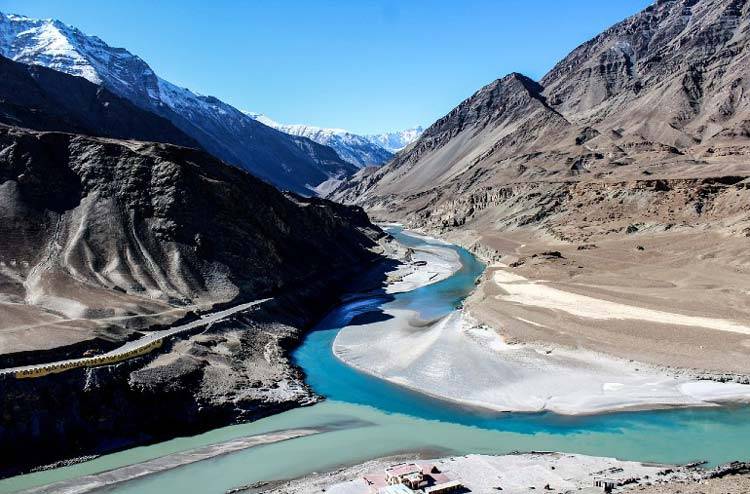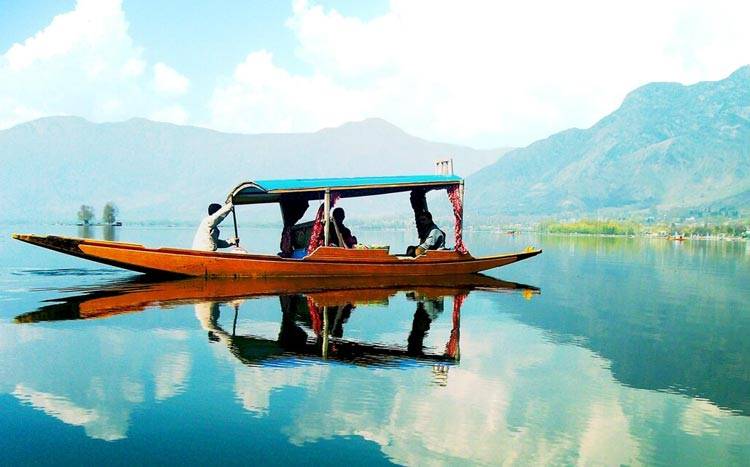
“Embark on a captivating Shikara ride in the picturesque waterways of Kashmir, where the tranquillity of Dal Lake envelops you, and the majestic mountains stand as silent witnesses to the timeless beauty that unfolds with every gentle stroke of the oar.”
“Discover Serenity: Shikara Bliss on Dal Lake in Kashmir’s Timeless Beauty”
With enormous greens towering on each side or stretches of tranquil water ahead, Kashmir’s lakes are perfect for floating around and admiring the beauty of nature. A Shikara ride along one of the Kashmir region’s lakes is an unforgettable experience. A Shikara is a long wooden boat that you may frequently see cruising along on Kashmir’s lakes. They are utilized for both transportation and tourism. Many tourists have enjoyed the unique experience of floating over the quiet, placid waters of lakes like the Dal while passing by some of the area’s most famous locations, including the Nishat and Shalimar Gardens, as well as the Hazratbal Mosque.
Book holiday packages to Kashmir with Kashmir Tour Travel one of the best tour operators in Kashmir.
Shikaras are a type of wooden boat that may be found on Srinagar’s lakes in J&K. For its shikara rides, the Dal Lake in Srinagar is well known among tourists. Shikaras exist in different sizes and can be used for a variety of things, including public transportation. Typically, a shikara may hold six passengers, with the driver seated at the lowest extremity. Shikaras are regarded as the cultural embodiment of Kashmir, much like the American venetian gondola.
The Design and Uses of Shikaras
A typical shikara is around 4.6 metres (15 feet) long and made of deodar tree wood. These shikaras distinguish out from other boats thanks to their colorful tops and distinctive spade-shaped bottoms. Shikaras can be built for roughly one lakh in total, and they can be used for almost twenty years.
The majority of shikaras, which are mostly utilised by visitors, are covered in waterproof tarpaulin material. These shikaras are used as floating homes by some low-income individuals.
Shikara Ride in Dal Lake
In the entire Jammu and Kashmir region, Dal Lake is renowned for its vibrancy and majesty. On this renowned Dal Lake, the shikara and houseboat villages have persisted in habitation for decades. These towns never need to disembark because they have a complete infrastructure on the lake itself. In the little wooden stores near huge lotus ponds and picturesque vegetable gardens, there are tailors, doctors, and bakers on the lake itself.
The shikara ride on Dal Lake is unquestionably part of a vacation in Kashmir. In Srinagar, J&K, this is the most peaceful and comforting experience possible. Shikaras from all over the world frequently throng the Dal Lake. While there are several locations around Dal Lake where tourists can board shikaras, it is not advisable to do so at the lake’s entrance because it will take a long time to get to the open water.
Dal Lake’s interior is completely covered by a 2-hour-long shikara ride, which travels across the lake’s calm waters. The majority of Srinagar’s tourist attractions are close to Dal Lake, which is situated in the city’s center. The Hazratbal Mosque, Nishat Garden, and Shalimar Garden are among the locations that shikaras can travel to.
Places to visit in the Dal Lake on a Shikara
The following are the tourist destinations in Dal Lake that you must see and explore by shikari:
National Park
A shikara is needed to reach this tiny island. The boatman of the shikara urges the passengers to visit this lovely park while they are out on a ride. The first Prime Minister of India, Pt. Jawaharlal Nehru, is the source of the park’s name.
Floating Gardens
Vegetable cultivation is practiced in the communities situated around the Dal Lake. Vegetables of every kind can be observed here on little branches while riding in a shikara. The weeds used to create these floating gardens or islands were taken directly from Dal Lake. The boatmen gather the weeds, press the roots of one weed against the roots of the following weed, then press the roots of the following weed against the roots of the previous two, and so on. Due to their clingy and mucky roots, the weeds get cemented together and unable to be separated. The boatmen will then trim the tall culms and construct carpets. These man-made mats, which together with the floating gardens on Dal Lake, float on the water. Due to the water playing endlessly below them, these mats eventually grow tired.
Sabzi Bazaar on a boat floating in Dal Lake
The floating sabzi bazaar takes place two to three kilometers inside the Dal Lake, and travelers can visit it while sailing on a shikhara. Any day between the hours of 4 and 6 in the morning, one can observe this vegetable market. The floating market in Thailand is in contrast to this market. Booking a shikara in advance is required to visit this location. The shikaras charge between 800 and 1200 rupees to visit the vegetable market. Occasionally, after some haggling, the price can even drop to about 500 rupees. One may see canals and little, tree-lined lanes while viewing the sabzi market inside Dal Lake. On this journey, you can also view houses with modest gardens and old wooden shops.
Also Visit – Kashmir honeymoon tour packages
Best Time to go on Shikara Ride in Dal Lake
The optimum time to take a shikara ride in the summer is just before dusk. So, taking a shikara ride on Dal Lake not only provides a wonderful opportunity to enjoy Srinagar’s natural beauty, but it also makes it clear that the lake provides locals with options for a living.
FAQ’s of Srinagar Shikara Ride
In Srinagar, is it safe to take a Shikara ride?
Due to the shallow depth of Dal Lake and the fact that the shikara is rowed extremely gently, guests can easily take in the spectacular scenery all around them while enjoying a shikara ride in Srinagar.
How long does a Srinagar shikara ride last?
Shikara rides typically last an hour, but if you’d like to extend it, just pay the oarsmen for the extra time. For more information about shikara ride in Kashmir contact Kashmir Tour Travel one of the best tour operator in Kashmir.

